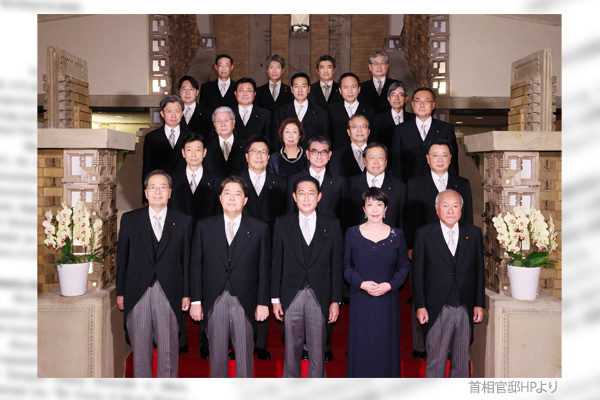Japanese Prime Minister Fumio Kishida positioned his new cabinet as an emergency-response cabinet in his press conference on August 10 when he reshuffled his cabinet. He cited the Ukraine war and U.S.-China tensions over Taiwan as representing the emergency. It was significant for the prime minister to use the word “emergency.” I agree with Kishida that the security environment surrounding Japan is severe. But a development just before the cabinet reshuffle led me to doubt if Kishida really recognizes the current situation as an emergency. Kishida refrained from convening a meeting of the National Security Council on August 4 when China fired five ballistic missiles into Japan’s exclusive economic zone as part of its military drills. His protest against the missile firing came on the next day.
“If ballistic missiles are fired into areas near Japan’s territory, an NSC meeting should usually be convened to lodge a strong protest officially,” said former Defense Minister Itsunori Onodera on the BS Fuji TV program “Prime News” on the night of August 11. It was unusual for Onodera, known as a close aide to Kishida, to criticize the prime minister’s response.
Exploring a Japan-China summit
Why didn’t Kishida convene the NSC meeting even when such criticism had been expected to arise from within the ruling Liberal Democratic Party? The NSC was created in December 2013 at the initiative of then Prime Minister Shinzo Abe who was shot dead in July. Kishida should have recognized the significance of the NSC as he attended NSC meetings as Abe’s foreign minister.
Government and the ruling coalition sources say that Kishida might have kept from convening the NSC meeting to avoid provoking China because he was exploring a plan to hold a summit with Chinese President Xi Jinping this year to mark the 50th anniversary of the normalization of Japan-China relations. Given that then Japanese Prime Minister Kakuei Tanaka and Chinese Premier Zhou Enlai signed a Japan-China communique for the normalization on September 29, 1972, Kishida is reportedly seeking to hold a meeting with Xi around the day this year. “It is important (for Japan and China) to communicate with each other in the time of hardships,” Kishida told the press conference after the cabinet reshuffle.
On August 17, NSC Secretary General Takeo Akiba visited China and held a seven-hour meeting with Yang Jiechi, a Chines Communist Party Politburo member known as a top foreign policy architect. At the meeting proposed by Beijing, they might have coordinated a schedule for the Japan-China summit.
Determination to defend territory
It would be preposterous if Kishida refrained from convening the NSC meeting in order not to provoke China. While exploring talks with China, Abe had not forgotten to directly urge China not to misunderstand Japan’s determination to defend the Senkaku Islands. If Japan shows a weakness, China may try to take advantage of the weakness. It is important for Japan to demonstrate its strong will and capabilities to defend itself. So, Japan is urgently required to work to substantially increase defense spending.
Takashi Arimoto is a Planning Committee member at the Japan Institute for National Fundamentals and publisher of Monthly Magazine SEIRON at the Sankei Shimbun newspaper.


